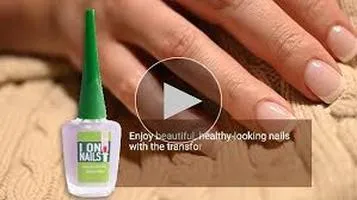The Ultimate Nail Transformation: A Comprehensive Review of Nail Hardeners
Nail hardener is a specialized cosmetic product designed to strengthen and protect fragile or brittle nails. Typically formulated with a blend of fortifying ingredients like proteins, keratin, and calcium, nail hardeners work by reinforcing the natural nail structure, reducing the risk of splitting, peeling, and breakage. They often come in the form of clear polishes or treatment oils that can be applied directly to the nail surface. By creating a protective barrier, nail hardeners help nails grow longer and healthier over time. Ideal for individuals who frequently expose their nails to water, chemicals, or physical stress, these products can be used alone or as a base coat under colored nail polish. Consistent use can result in visibly stronger, more resilient nails.

In the world of nail care, nail hardeners have emerged as a game-changer for individuals seeking to transform their brittle, weak nails into strong, healthy ones. As someone who has struggled with fragile nails for years, I embarked on a journey to find the perfect nail hardener. After extensive research and personal experimentation, I compiled my findings into this comprehensive review, highlighting the benefits, potential drawbacks, and overall effectiveness of nail hardeners.
The Need for Nail Hardeners
Brittle nails can be a significant source of frustration, often breaking or splitting at the most inconvenient times. Several factors contribute to weak nails, including nutritional deficiencies, excessive exposure to water, use of harsh chemicals, and even genetics. Nail hardeners promise to address these issues by fortifying the nail plate, promoting growth, and preventing damage.
Types of Nail Hardeners
Nail hardeners are available in various formulations, each offering unique benefits. The three primary types include:
1. Formaldehyde-Based Hardeners: These are the most potent and commonly used nail hardeners. Formaldehyde strengthens the nails by cross-linking the keratin fibers, making them more resistant to breaking. However, some users may experience sensitivity or allergic reactions to formaldehyde.
2. Protein-Based Hardeners: These formulations use proteins like keratin, collagen, or silk to fortify the nails. They are generally gentler than formaldehyde-based hardeners and suitable for individuals with sensitive nails.
3. Calcium and Vitamin Enriched Hardeners: These hardeners contain essential nutrients like calcium, vitamins E and B5, and other minerals that promote nail health. They are ideal for those looking to improve nail strength and overall health naturally.
My Experience with Nail Hardeners
Week 1: Initial Application and Observations
I began my nail hardener journey with a formaldehyde-based product, known for its efficacy in strengthening nails quickly. The application was straightforward, and the hardener dried within minutes, leaving a glossy finish. Within a week, I noticed a slight improvement in nail strength, though my nails still felt somewhat brittle.
Week 2-3: Noticeable Changes
By the end of the second week, my nails felt significantly stronger. I could see a reduction in peeling and splitting, which was a welcome change. However, I did experience a slight tingling sensation upon application, which I later learned was a common side effect of formaldehyde-based hardeners.
Week 4: Switching to a Protein-Based Hardener
To address the sensitivity I experienced, I switched to a protein-based nail hardener. This product was milder and contained keratin and silk proteins. The application process was similar, but the finish was less glossy compared to the formaldehyde-based hardener. Despite the milder formulation, my nails continued to strengthen, and the tingling sensation subsided.
Week 5-6: Long-Term Results
After six weeks of consistent use, my nails were noticeably stronger and healthier. The peeling and splitting had ceased entirely, and my nails had a natural, healthy shine. I also appreciated that the protein-based hardener was gentler on my nails and cuticles, causing no irritation or sensitivity.
Pros of Nail Hardeners
1. Effective Strengthening: Nail hardeners, especially formaldehyde-based ones, are highly effective in fortifying weak nails and preventing breakage.
2. Promotes Nail Growth: Regular use of nail hardeners can promote healthy nail growth, as stronger nails are less prone to damage.
3. Versatility: Nail hardeners can be used as a base coat or standalone product, making them versatile additions to any nail care routine.
4. Improved Appearance: Many nail hardeners leave a glossy finish, giving nails a polished, well-maintained look.
Cons of Nail Hardeners
1. Sensitivity and Irritation: Formaldehyde-based hardeners can cause sensitivity, tingling, or allergic reactions in some individuals.
2. Temporary Effects: The strengthening effects of nail hardeners may diminish once use is discontinued, necessitating regular application for sustained results.
3. Potential for Overuse: Overuse of nail hardeners can lead to overly rigid nails, increasing the risk of breakage. It's essential to follow the recommended usage guidelines.
Conclusion
Nail hardeners are a valuable tool in the quest for strong, healthy nails. My personal experience demonstrated that both formaldehyde-based and protein-based hardeners could significantly improve nail strength and appearance. While formaldehyde-based hardeners offer rapid results, those with sensitive nails may prefer protein-based alternatives for a gentler approach.
Ultimately, the choice of nail hardener depends on individual needs and preferences. Regular use, combined with proper nail care practices, can transform brittle, weak nails into resilient, beautiful ones. For anyone struggling with fragile nails, investing in a quality nail hardener is a decision that can yield long-lasting benefits, enhancing both nail health and confidence.






